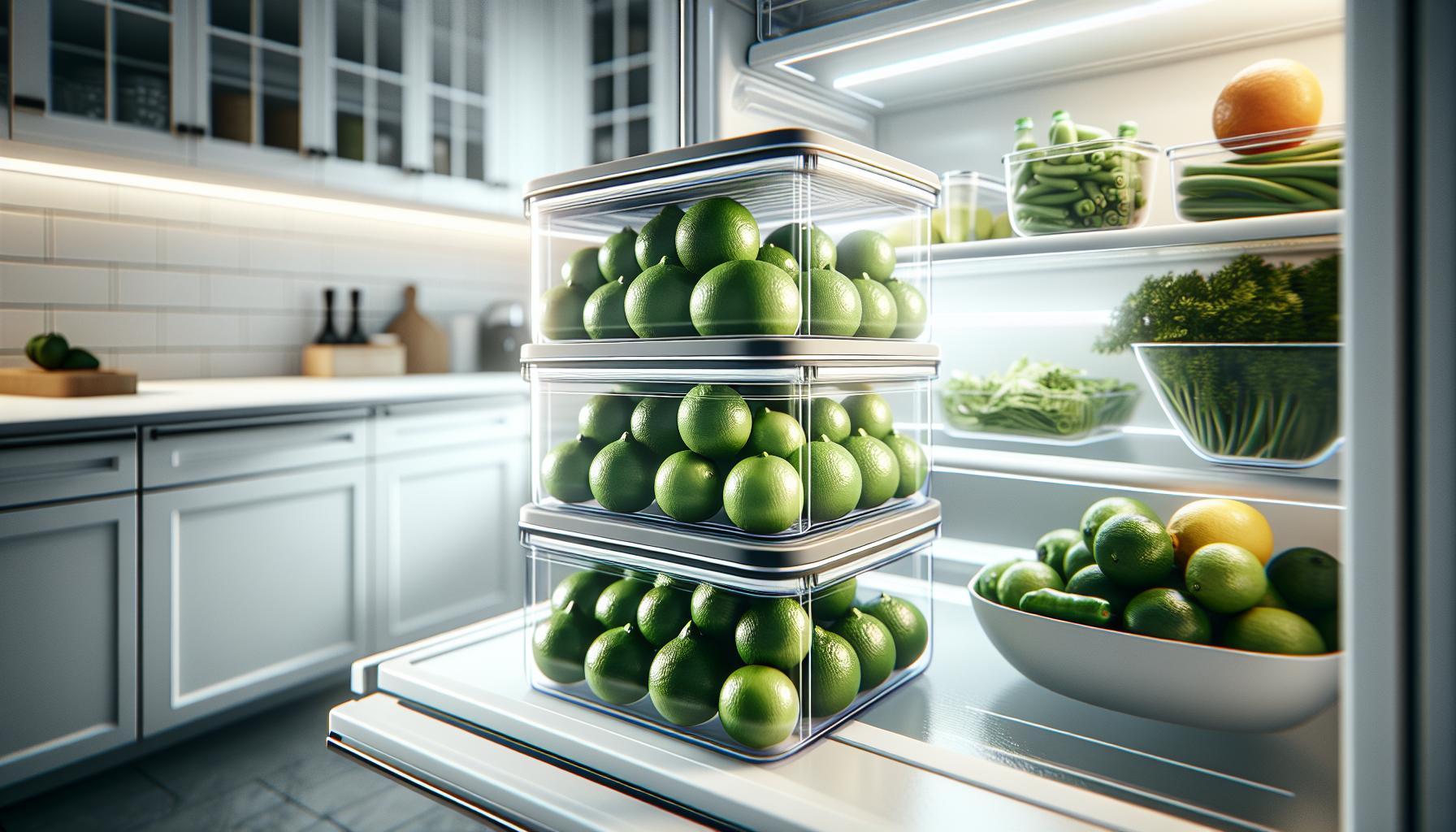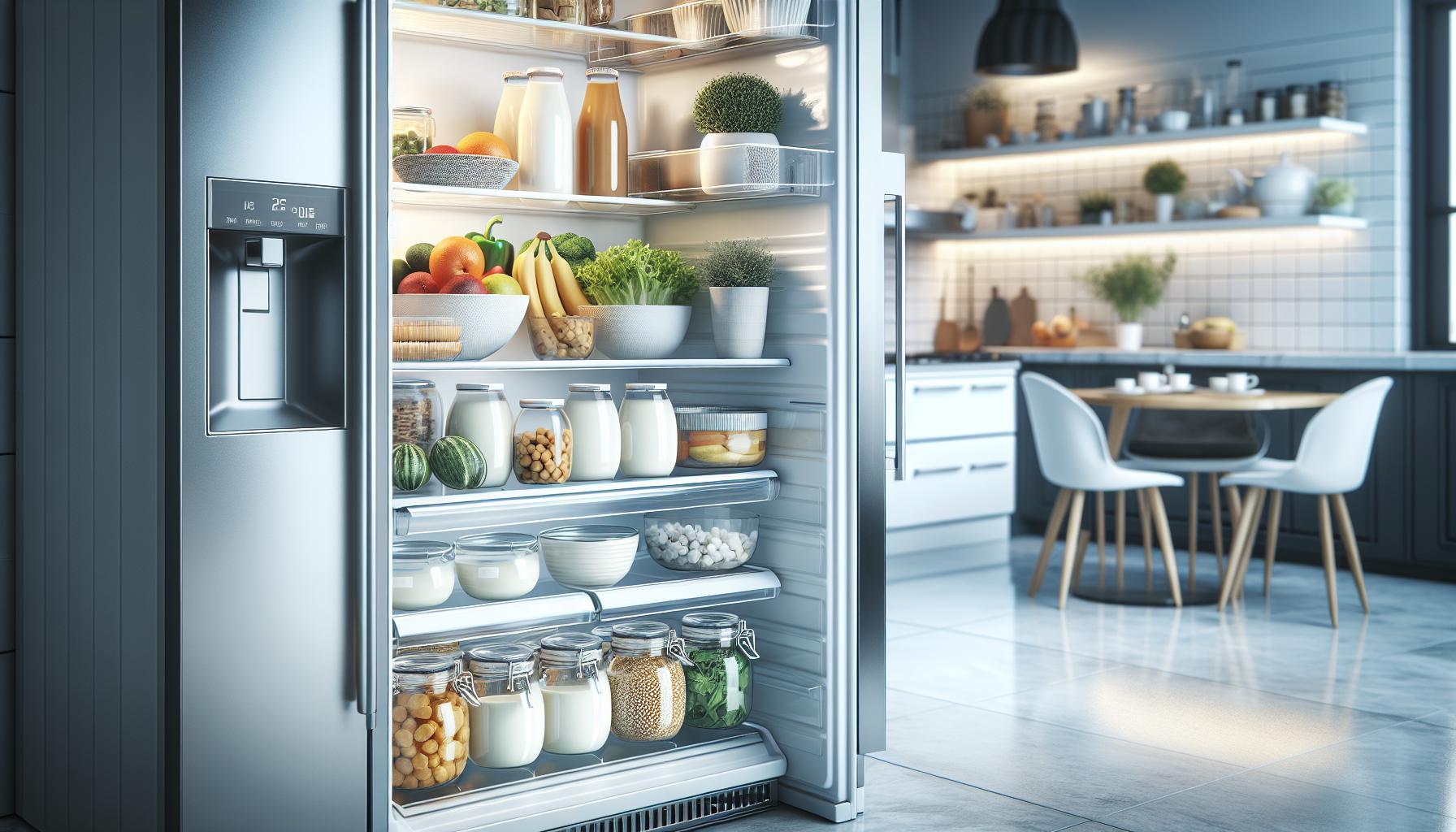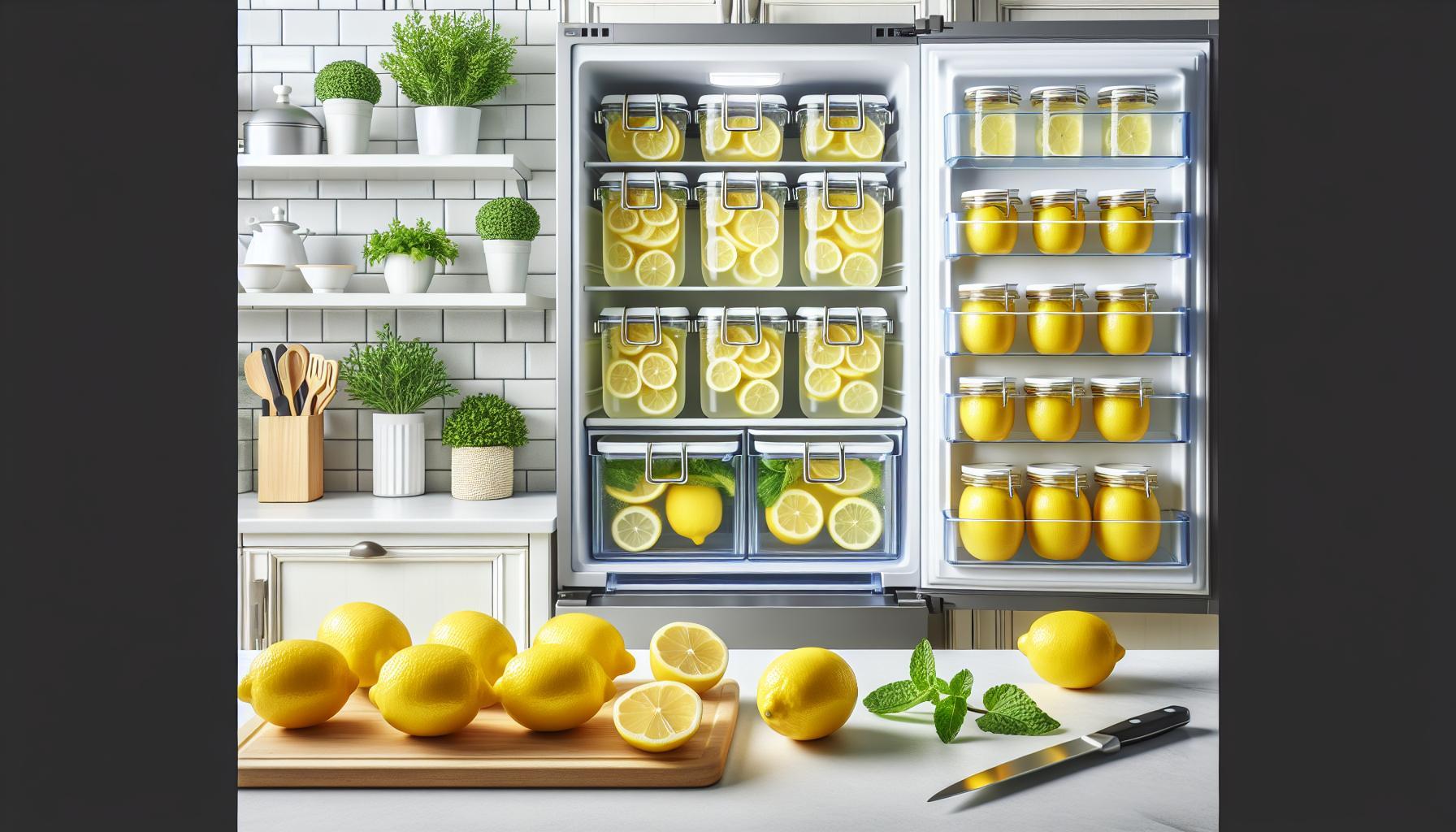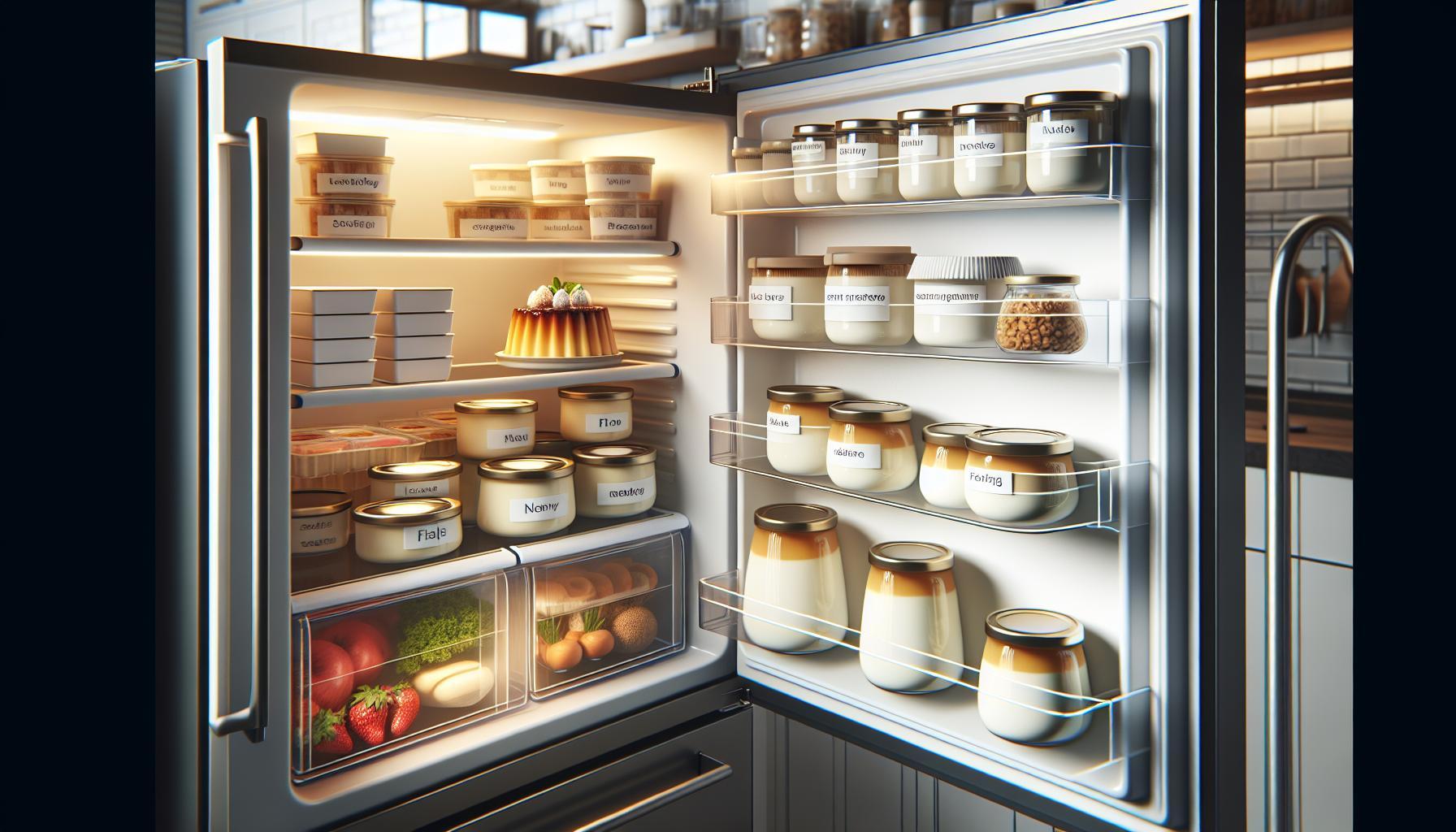Did you know that dates, with their delightful sweetness and chewy texture, can last for an impressive amount of time when stored properly? These nutritious fruits are not only a staple in various cuisines but also packed with health benefits. Understanding how long dates can last in your fridge is essential for maximizing their flavor and nutritional value while minimizing waste.
You may have wondered if those dates in your pantry are still good to eat or how you can keep them fresh longer. This guide will address common concerns about storing dates and provide practical advice on their shelf life, ensuring you enjoy every bite. By mastering the best storage practices, you can savor the deliciousness of dates and make informed decisions about your food. Let’s dive into how to keep this natural sweetness fresh for as long as possible!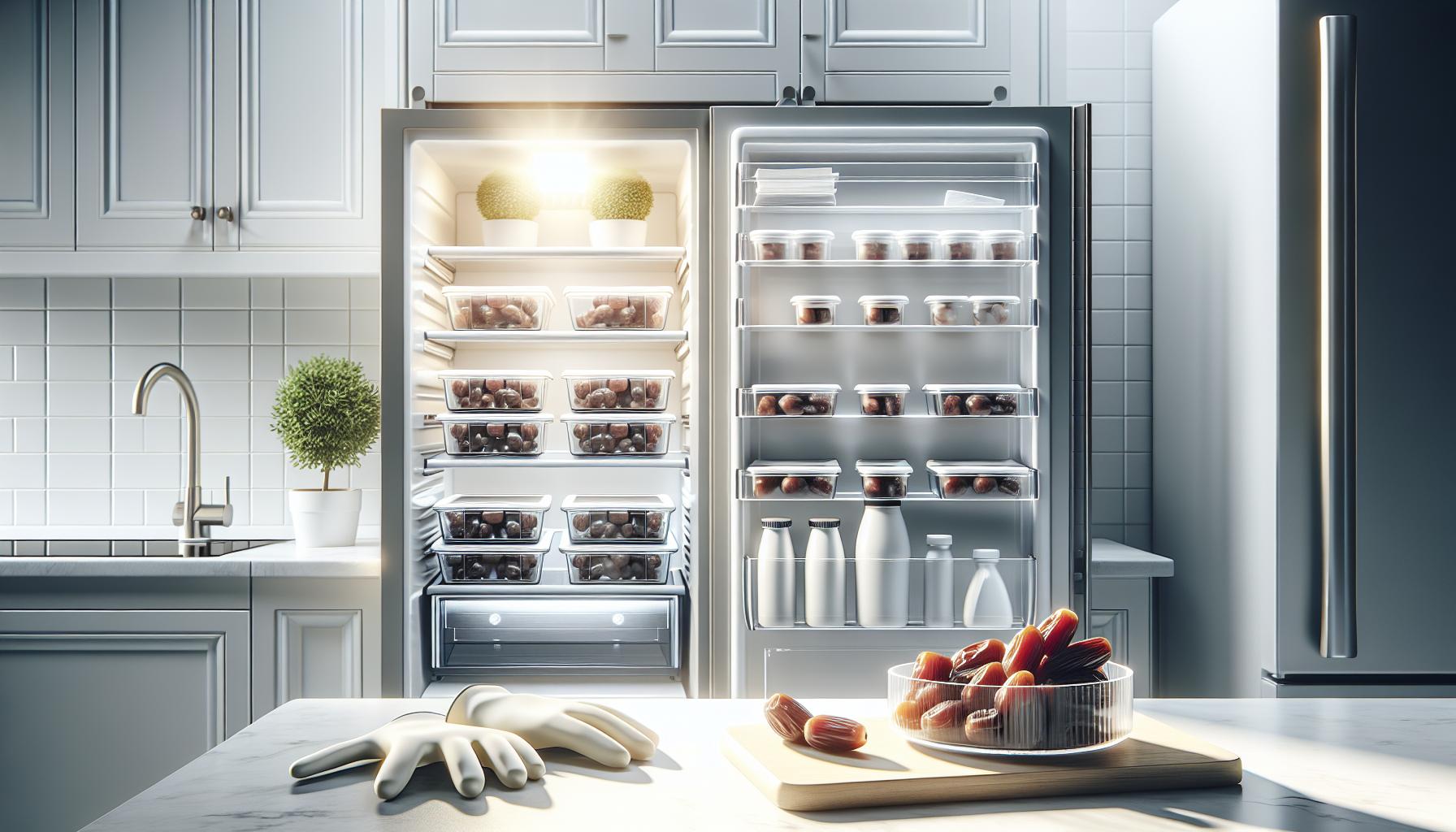
How Long Do Fresh Dates Last in the Fridge?
Fresh dates are not just delightful treats; they are a rich source of nutrients that can last longer than one might expect when stored properly in the refrigerator. Typically, when placed in the fridge, fresh dates can maintain their quality for about 1 to 2 months. This extended shelf life makes them a convenient option for snacking, baking, or adding natural sweetness to various dishes.
To maximize their freshness, it’s essential to store dates in a sealed container or bag to prevent moisture loss and protect them from absorbing odors from other foods. Keeping them in the crisper drawer of your refrigerator is ideal, as this section tends to have the right humidity levels suitable for preserving produce. Always check dates periodically; if they become overly dry or start to show signs of mold, it’s best to discard them.
When properly cared for, fresh dates can remain delicious and nutritious throughout their fridge life, providing an easy way to enjoy this sweet, wholesome fruit anytime.
Understanding the Shelf Life of Dried Dates
Dried dates have a remarkably long shelf life, making them an ideal pantry staple for both snacking and cooking. Unlike their fresh counterparts, which may last only a couple of months in the fridge, dried dates can last for well over a year when stored properly. Typically, you can expect dried dates to retain their best quality for about 6 to 12 months in a sealed container at room temperature, while refrigeration can extend their freshness even further to around 12 to 18 months.
To ensure optimal preservation of dried dates, it’s essential to store them in an airtight container or a resealable plastic bag, as exposure to air can lead to desiccation and a loss of flavor. Placing them in a cool, dark place-like a pantry-is ideal, but if you live in a warmer climate, refrigeration is advisable to combat the risk of spoilage. Always remember to keep the dates away from strong-smelling foods, as they can easily absorb odors.
It’s also worthwhile to regularly check your dried dates for any signs of spoilage. While dried dates are naturally low in moisture content, they can still exhibit undesirable qualities like stickiness or changes in color and texture when they’re nearing the end of their shelf life. If your dates appear excessively hard, dry, or develop an off smell, it’s best to err on the side of caution and discard them. By following these straightforward storage practices, you can enjoy the rich sweetness and health benefits of dried dates while minimizing waste and maximizing enjoyment.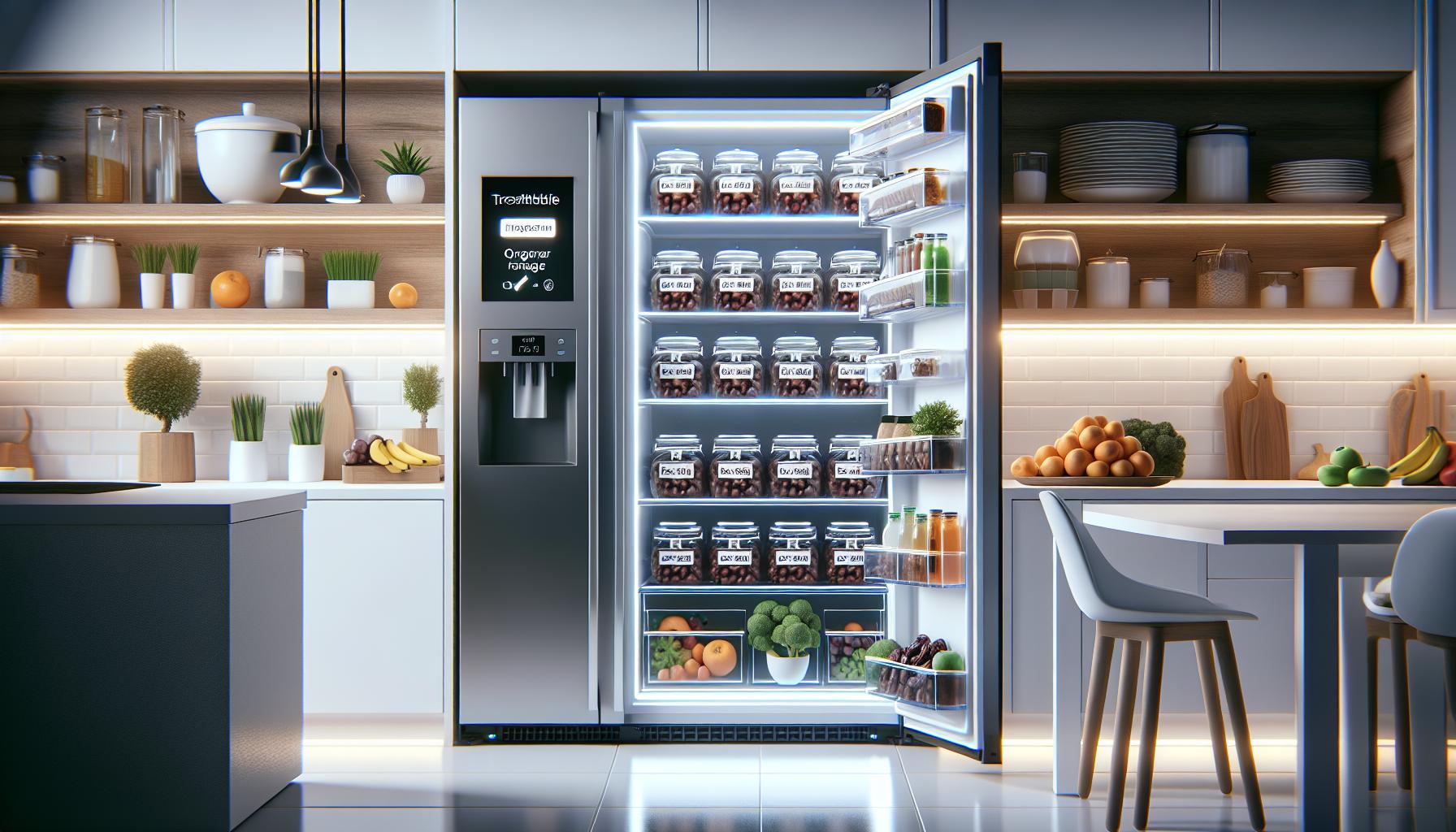
Signs That Your Dates Have Gone Bad
When it comes to enjoying dates, knowing when they have gone bad is crucial for both safety and taste. Fresh dates, while delicious, typically have a shorter shelf life compared to their dried counterparts. Over time, fresh dates can lose moisture and flavor, leading to deterioration. Recognizing the signs of spoilage can help you avoid consuming dates that are past their prime.
One of the most noticeable indicators that dates have spoiled is the texture. Fresh dates should be plump and moist; if they feel excessively dry or hard, it’s a sign of age. Another telltale sign is the appearance. Fresh dates should have a glossy, smooth skin. If you notice any white powdery substance, it could be sugar crystallization, which means the dates have dried out. However, if you see dark spots or mold growing on the fruit, it’s definitely time to discard them.
Additionally, a change in smell can be a key indicator of spoilage. Fresh dates emit a sweet, fragrant aroma. If your dates have developed a sour or off-putting odor, they are likely no longer safe to consume. It’s essential to trust your senses; if something seems off, it’s best to err on the side of caution and dispose of them.
To ensure you’re consuming dates in their best condition, regularly check your stash and practice good storage methods. Store your fresh dates in an airtight container in the fridge to prolong their freshness and avoid cross-contamination with other foods. If you spot any signs of spoilage, whether it’s changes in texture, appearance, or odor, don’t hesitate to toss them out. This proactive approach will help you enjoy the delightful sweetness of dates while ensuring food safety.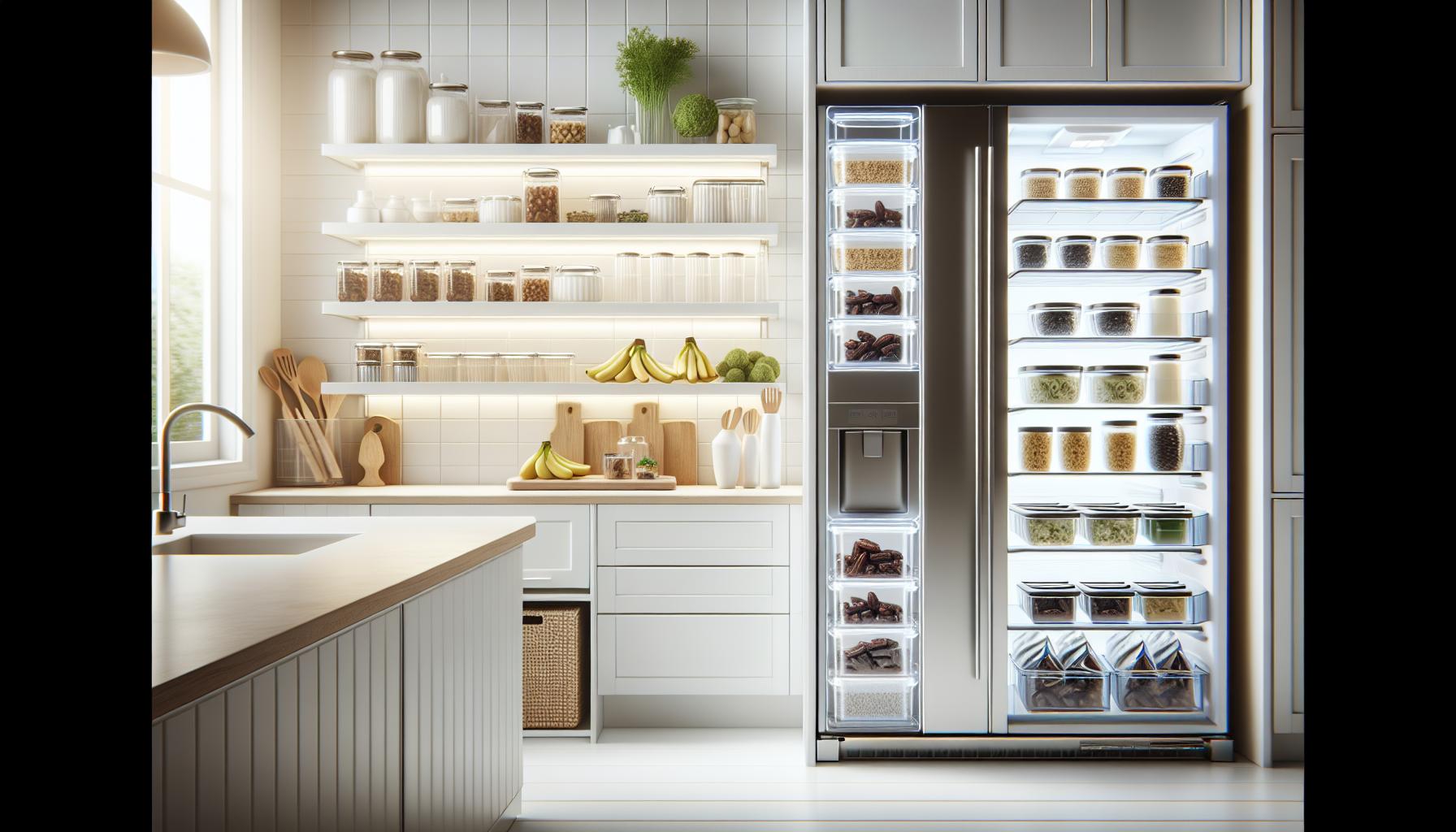
Best Practices for Storing Dates Safely
To enjoy the sweet, chewy goodness of dates for as long as possible, proper storage techniques are vital. When stored correctly, fresh dates can last in the fridge for about 2 to 3 weeks, while dried dates have a significantly longer shelf life, extending up to 6 months or more. Here are key practices to ensure your dates stay delicious and safe to eat.
Choose the Right Container
Proper storage begins with selecting the appropriate container. Keep fresh dates in an airtight container to minimize air exposure, which can lead to dehydration and spoilage. Glass or plastic containers with tight-fitting lids work best. Avoid leaving dates in their original packaging, as it often does not offer adequate protection from air and moisture.
Keep Them Refrigerated
To extend the freshness of your dates, always store them in the refrigerator, particularly if you’ve opted for fresh varieties. The cold temperature slows down spoilage and helps retain moisture. Dried dates can remain in a cool, dark pantry if they are unopened, but once opened, transferring them to the fridge is recommended to maintain their quality.
Monitor Storage Conditions
Temperature and humidity play crucial roles in the longevity of dates. Aim to keep your refrigerator below 40°F (4°C) and ensure that the storage area is not too humid. If dates are exposed to moisture, they can become sticky and prone to mold growth. To further protect dried dates, consider placing them in the freezer for long-term storage, which can keep them good for up to a year. Just be sure to package them securely in a freezer-safe container.
Regularly Check for Spoilage
Even under optimal storage conditions, it’s crucial to check your dates periodically for any signs of spoilage. Remove any that appear discolored, dry, or have mold. By keeping a close eye on your stored dates, you can enjoy their natural sweetness while avoiding safety risks associated with spoiled fruit.
By following these best practices, you can savor the delight of fresh, delicious dates for weeks or even months, making them a convenient and nutritious snack in your kitchen arsenal.
Maximizing Freshness: Tips for Keeping Dates
To ensure your dates maintain their moist, sweet goodness for as long as possible, there are several effective strategies to follow. One important tip is to avoid washing dates until you are ready to consume them. Washing can introduce moisture, which fosters mold growth and accelerates spoilage. Instead, store dates in their original packaging or an airtight container to minimize exposure to air and humidity.
Utilizing the proper storage container plays a crucial role in preserving freshness. Opt for containers made of glass or high-quality plastic with tight-fitting lids, which provide the best protection against environmental factors that can degrade the quality of dates. As an added measure, keep the dates in the coldest part of your refrigerator-not the door, where temperatures fluctuate-and ensure that the container is placed on a shelf away from strong-smelling foods, as dates can absorb odors over time.
Temperature is vital for freshness, with refrigeration generally extending the life of fresh dates up to 2 to 3 weeks. For dried dates, maintain them in a cool, dark pantry if unopened, but once opened, put them in the refrigerator. If you want to keep dried dates for an extended period, consider freezing them. When properly stored in a freezer-safe container, frozen dates can last for up to a year without significant loss of flavor or texture.
Lastly, make it a habit to regularly inspect your stored dates for any signs of spoilage, such as discoloration, excessive stickiness, or mold. By removing any compromised dates promptly, you reduce the risk of spoilage spreading and ensure that you always have fresh, delicious dates to enjoy. Following these tips will not only help maximize the freshness of your dates but also enhance your culinary experience by retaining their sweet flavor, whether in snacks or recipes.
Can You Freeze Dates? A Step-by-Step Guide
When it comes to prolonging the life of dates, freezing is a fantastic option that can help you keep these naturally sweet fruits on hand for up to a year without sacrificing flavor or texture. Whether you’ve bought dates in bulk or simply have some leftover from a recipe, knowing how to properly freeze them can ensure they remain delicious for your future culinary adventures.
To begin, it’s essential to prepare your dates for freezing. If they are whole and in good shape, you can place them directly into freezer-safe bags or containers. For added convenience in cooking or snacking later on, consider pitting the dates and slicing them in half before packing them. This method can also reduce the amount of time it takes to thaw them when you’re ready to use them.
Here’s a simple step-by-step guide to freezing dates:
Step-by-Step Freezing Guide
- Choose the Right Container: Use airtight freezer bags or rigid plastic containers designed for freezing. Remove excess air from bags to prevent freezer burn.
- Prepare the Dates: If desired, pit and cut the dates in half. This can make them easier to use directly in recipes later.
- Pack Them Up: Place the prepared dates in your chosen container, ensuring they’re not overcrowded to maintain air circulation.
- Label and Date: Don’t forget to label your bags or containers with the date of freezing. This helps you keep track of freshness.
Once frozen, dates can be kept for up to a year. To use them, simply remove the desired amount from the freezer and allow them to thaw at room temperature or in the refrigerator. Thawing in the fridge is ideal to maintain their texture, especially if you plan to use them in baked goods later. For quick use, they can also be thawed in the microwave for a few seconds.
By following these straightforward steps, you can assure that your dates remain a handy ingredient, burst with sweet flavor, ready to spice up snacks or enrich your meals throughout the year.
Nutritional Benefits of Dates: Why They’re Worth Keeping
When it comes to nutritional powerhouses, few foods can rival dates. These naturally sweet fruits are not only delicious but also packed with an impressive array of vitamins, minerals, and beneficial compounds. Incorporating dates into your diet can offer numerous health benefits, making them a worthwhile addition to your pantry, particularly if you know how to properly store them.
Primarily, dates are an excellent source of dietary fiber, which promotes healthy digestion and can help prevent constipation. A typical serving of dates provides a significant portion of your daily fiber requirements. Additionally, these fruits contain essential nutrients such as potassium, which aids in heart health, and magnesium, crucial for bone health and metabolic function. Their high antioxidant content-including flavonoids, carotenoids, and phenolic acid-also contributes to reducing inflammation and protecting cells from oxidative stress, making them a smart choice for chronic disease prevention.
When stored properly, whether in the fridge for fresh dates or in a cool, dry place for dried varieties, the nutritional benefits of dates can last for an extended period. For maximum freshness, keeping them airtight is key, as exposure to air and moisture can lead to spoilage. By understanding these storage practices, you can ensure that you’re not only preserving the sweet flavor of dates but also maintaining their health-promoting qualities.
Incorporating dates into your meals can be both enjoyable and beneficial. They can be added to smoothies, energy bars, salads, or used as a natural sweetener in baking. This versatility makes them a practical choice for maintaining a healthy diet, allowing you to enjoy their flavor and nutrition while keeping your meals interesting.
Using Leftover Dates: Creative Recipe Ideas
When it comes to leftover dates, their versatility means you can easily incorporate them into various delicious recipes, preventing waste while enjoying their rich natural sweetness. These fruits can be utilized in both sweet and savory dishes, allowing you to explore creative culinary possibilities.
Sweet Treats
Dates are perfect for creating delectable desserts. One popular way to use leftover dates is to blend them into a sweet energy ball recipe. Simply combine pitted dates with nuts, seeds, and a splash of nut butter for a nutritious snack. You can also chop dates and fold them into your favorite granola or oatmeal for added sweetness and texture. Another fantastic dessert option is to make a date caramel by blending dates with almond milk and a pinch of sea salt, which can then be drizzled over fruit, pancakes, or yogurt.
Savory Dishes
In savory cooking, dates can bring a delightful contrast to many meals. Try dicing dates and adding them to a salad with greens, feta cheese, walnuts, and a light vinaigrette. The sweetness of the dates perfectly complements the tanginess of the feta. Additionally, dates work surprisingly well in grain dishes; consider stirring chopped dates into cooked quinoa or couscous, perhaps with some herbs and spices to elevate the flavor.
Baking Ideas
When it comes to baking, dates can serve as both a sweetener and a source of moisture. You can substitute sugar with pureed dates in various recipes, including muffins, cakes, or brownies. Just be sure to adjust the liquid content accordingly. For a wholesome breakfast, try incorporating diced dates into banana bread or using them in homemade snack bars that can be enjoyed on the go.
By creatively transforming leftover dates into new dishes, not only do you minimize food waste, but you also expand your culinary repertoire. With these ideas, you can ensure that every date remains a delightful addition to your meals.
Date Varieties: Which Lasts the Longest?
Different varieties of dates not only vary in taste and texture, but they also differ significantly in their shelf life. Understanding these differences can help you make informed decisions about which dates to buy for your pantry, especially if you’re looking to keep them fresh for an extended period.
Medjool dates, known for their large size and caramel-like sweetness, generally have a shorter shelf life compared to other varieties. When stored properly in the refrigerator, they can last up to six months. However, with optimal conditions, such as being kept in an airtight container, you may extend their freshness for a little longer.
On the other hand, Deglet Noor dates are often referred to as the “queen of dates.” These have a firmer texture and a longer shelf life. Deglet Noor can last up to a year when stored correctly in a cool, dry place. Their slightly drier nature makes them less prone to mold, which is a common problem with softer date varieties.
Comparative Shelf Life of Date Varieties
| Date Variety | Average Shelf Life in Fridge | Storage Suggestions |
|---|---|---|
| Medjool | Up to 6 months | Airtight container in a cool area |
| Deglet Noor | Up to 1 year | Airtight container in a cool, dry place |
| Barhi | 1-2 months | The refrigerate for freshness |
For those interested in lesser-known varieties, Barhi dates are worth considering. These dates are sweet and soft when fresh but can be difficult to find. They generally last one to two months in the fridge, so consuming them sooner rather than later is advisable.
Choosing the right variety of dates based on how long you plan to store them can significantly affect your culinary experience and minimize food waste. Be sure to check for any signs of spoilage, including an off smell or increased stickiness, regardless of the type you select. Store your dates correctly, and you’ll enjoy their wholesome sweetness long after purchase.
Myths About Date Storage Debunked
Many believe that all dates require the same storage conditions or that they become inedible after a certain timeframe. However, these misconceptions can lead to unnecessary food waste and missed opportunities to enjoy this nutritious snack. Understanding the truth about date storage is essential for maximizing their freshness and flavor.
One prevalent myth is that dates cannot be stored in the refrigerator. In fact, refrigerating dates, particularly those with higher moisture content such as Medjool dates, can significantly extend their shelf life to around six months. To prevent moisture loss and avoid them absorbing odors from other foods, it’s vital to keep them in an airtight container. Storing dates in the pantry is suitable as well, but be aware of the ideal timeframe, especially during warmer months where temperatures can accelerate spoilage.
Another common misconception is that dried dates have no expiration. While dried dates do indeed last longer than fresh ones, they are not impervious to spoilage. Over time, they may dry out further, losing texture and flavor. Signs of aging include a noticeable increase in stickiness, which can indicate that they are beginning to break down. It’s advisable to regularly inspect your dates and, if needed, adjust your storage methods or eat them sooner rather than later.
Furthermore, some people think that freezing dates compromises their quality. On the contrary, freezing dates can be an excellent way to preserve their freshness for up to a year. When properly wrapped in freezer-safe bags or containers, they maintain their flavor and texture, making them a convenient ingredient for smoothies, baking, or snacking. Just remember to thaw them in the refrigerator to prevent any condensation that could affect their quality.
By debunking these myths, you can enjoy dates at their best while reducing waste and ensuring that you savor their natural sweetness. Understanding the right storage methods not only helps maintain their quality but also enhances your culinary experiences.
The Science Behind Food Preservation and Dates
The preservation of food, including dates, hinges on understanding both the biological processes that lead to spoilage and the conditions that extend the shelf life of these sweet fruits. Dates, being rich in sugars, are particularly susceptible to changes in moisture and temperature. The science behind food preservation demonstrates that proper storage techniques can significantly impact both freshness and safety, particularly for dates which are often enjoyed as a healthy snack.
Dates thrive in a controlled environment where moisture and temperature are carefully monitored. Their natural sugars, along with low moisture content in dried varieties, create a hostile environment for microbial growth, but excess moisture can lead to mold and spoilage. It’s essential to store fresh dates in an airtight container within the fridge to maintain optimal humidity levels, preventing them from hardening or absorbing odors from other foods. In general, fresh dates can last up to six months in the refrigerator, while dried dates may last even longer, often up to a year or beyond, depending on storage conditions.
Optimal Conditions for Freshness
Understanding the specific conditions that affect the longevity of dates can aid in maximizing their shelf life. Here are important factors to consider:
- Temperature: Refrigeration slows down the enzymatic activities that lead to spoilage. Keep fresh dates in the fridge to enhance their lifespan.
- Moisture Control: Storing dates in airtight containers prevents moisture loss and keeps them from becoming overly sticky or molding.
- Freezing: Freezing dates can extend their lifespan even further-up to a year-while maintaining their quality. Ensure they are well-wrapped to prevent freezer burn.
Moreover, understanding the physical changes in dates during storage can help consumers identify when they may be starting to deteriorate. For example, once you notice a sticky texture or a change in color, it’s a sign that the dates might be past their prime. Taking proactive steps in storing and monitoring dates can not only save money but also enhance culinary enjoyment by ensuring you always have fresh, flavorful dates at hand.
Q&A
Q: How can I tell if dates are still good to eat?
A: To check if dates are still good, look for signs of mold, unusual smells, or a change in texture. Fresh dates should be soft and plump, while dried dates should be firm yet pliable. If they feel sticky or overly dry, they may be past their prime.
Q: How do the storage methods affect the lifespan of dates?
A: The lifespan of dates is significantly affected by storage methods. Keeping dates in an airtight container in the fridge can extend their freshness up to 6 months. For longer storage, freezing dates can preserve their quality for 1-2 years.
Q: Can I store dates in the pantry instead of the fridge?
A: Yes, dates can be stored in the pantry, but it’s best for shorter durations. Fresh dates should ideally be kept in the fridge and consumed within a few weeks, while dried dates can last for about 6-12 months in the pantry.
Q: What’s the best way to freeze dates?
A: To freeze dates, first pit them and then place them in a single layer on a baking sheet. Freeze until solid, then transfer to a zip-top bag or airtight container. This method prevents them from sticking together and allows for easy portioning later.
Q: Are there any health risks associated with eating expired dates?
A: Eating expired dates may pose health risks, including digestive issues or foodborne illnesses if mold or spoilage is present. Always inspect dates before consumption. If in doubt, it’s best to discard them to ensure safety.
Q: How long do organic dates last compared to non-organic dates?
A: Organic dates typically last just as long as non-organic dates when stored properly. Both types can last about 6 months in the fridge and 1-2 years in the freezer. The key factor is proper storage rather than organic status.
Q: Can you use slightly expired dates in cooking?
A: Yes, slightly expired dates can often be used in cooking or baking as long as they show no signs of spoilage. They are generally safe to incorporate into dishes where they will be cooked, such as in smoothies or baked goods.
Q: What types of dates last the longest in storage?
A: Medjool and Deglet Noor are among the varieties that tend to last the longest when stored properly. Dried dates generally have a longer shelf life compared to fresh ones, making them a good option for storage.
Concluding Remarks
Understanding how long dates last in the fridge ensures you enjoy their natural sweetness without waste. Typically, properly stored, dates can last several months, retaining their flavor and nutritional value while remaining safe to eat. Remember to keep them sealed in an airtight container to maximize freshness. If you’re curious about food storage best practices, check out our articles on “Food Safety Tips for Long-Lasting Snacks” or “How to Maximize the Shelf Life of Dried Fruits.”
Don’t let your dates sit too long-now is the perfect time to enjoy them in your favorite recipes or as a healthy snack! For more insights on maintaining your kitchen staples, consider signing up for our newsletter or exploring our related guides. Have questions or tips of your own? Share in the comments below! Your journey to smarter food storage continues, and we’re here to help you every step of the way.


